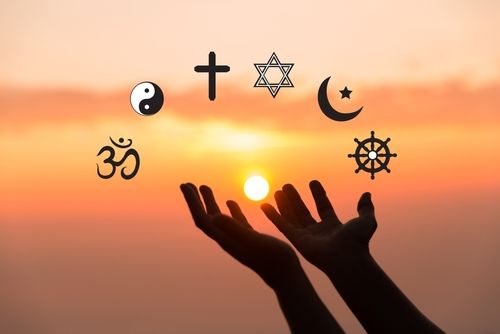 It can often seem like younger generations lack the same spiritual connection their predecessors possessed. However, it is important to take a closer look at the facts when casting such aspersions. Over recent years, a number of organizations have collected data related to how Millennials and members of Gen Z feel about religion and spirituality. Take a look at these points to discover what these studies have uncovered.
It can often seem like younger generations lack the same spiritual connection their predecessors possessed. However, it is important to take a closer look at the facts when casting such aspersions. Over recent years, a number of organizations have collected data related to how Millennials and members of Gen Z feel about religion and spirituality. Take a look at these points to discover what these studies have uncovered.
Religious Identity Has Changed
The biggest point of data to focus on is related to identity. In the past, it was common for individuals in Western countries like the United States and Canada to have a strong sense of religious identity. For example, roughly 63% of Americans identified as Christian in a 2021 poll. What is important to note is that the numbers are slightly smaller than they used to be. While there are still millions of young people who consider themselves strongly connected to a religious identity, there’s more younger people than ever before who choose to remain religiously unaffiliated.
While many young people refuse to join a specific belief system, there are plenty who identify themselves as spiritual. These individuals are not always likely to use terms like atheist or agnostic, as these names also carry the weight of identity. Instead, many people simply state they believe in “something,” even if the parameters for these beliefs are poorly defined.
Religion Is Not Tied to Morality
In the past, many people believed it was only possible to live a good and moral life by way of religion. This is no longer the case across the board, however. In Canada, recent polls highlighted that most citizens agree that religion does not inherently make a person more ethical or moral. The same is true in the United States. When polled about the topic in 2022, an overwhelming number of Americans agreed that it was not necessary for a person to be religious in order to be a decent human.
Religious Customs Are Popular Amongst the Secular
Even people who are not religious themselves are still likely to take part in customs associated with the religions they were raised in. For example, a vast majority of people raised in some form of Christianity will likely get married in a religious venue like a church. There are also countless people in the United States who identify as Jewish culturally, but do not follow any of the rituals or traditions connected to Judaism.
Many customs have become so ingrained in Western culture that the religious aspect takes a backseat. A shining example of this is Christmas, which is celebrated in both a religious and secular manner.
People of All Faiths Can Coexist
Coexistence is also more common among younger crowds when religion is involved. In high-population areas across the West like cities, it is common for people of all faiths to intermingle in professional, social, romantic, and casual ways. While there unfortunately still many examples of intolerance and hatred, it has vastly improved when compared to the tensions experienced by previous generations.
As the majority of people across younger generations become more accepting and open, it makes sense that there would be pushback from a vocal minority. Recent years have seen the rise of a number of hate groups and religious zealots disguised as politicians. While these individuals represent a very miniscule number of people, they often create such a ruckus that they take up more digital space than they should. While these groups and ideologies will sometimes seem frightening, it is important to remember that it is likely the dying cry of an ancient beast.
The Past Informs the Future
While the way people identify with religion changes from one generation to the next, things do not shift to the point of unrecognizability. Instead, the next generation simply attaches to what it finds most important and discards what it no longer needs.



